The Venue Management School (VMS) is the industry’s most respected career development experience for aspiring and emerging venue professionals. Delivered as a two-year residential program, VMS combines expert-led workshops, peer learning, and real-world application to strengthen capability across all venue types and career stages. From operational know-how to strategic thinking, students walk away with the tools, network, and confidence to thrive in the venue industry. Learn it today. Lead with it tomorrow.
As you progress through this structured, two-year program, you’ll form lasting connections with peers who share your commitment to excellence. These relationships become part of your professional support system — helping you grow both personally and professionally.
After an incredible first year, don’t miss the chance to reconnect with your classmates (or make new ones), complete your journey, and join the growing community of VMS alumni.
Many past graduates are among today’s industry icons — and tomorrow’s leaders are rising through the program right now.
At the heart of the VMS experience is our outstanding team of instructors, offering both domestic and international perspectives on venue management. Drawn from senior ranks across Australia, New Zealand, North America, and Asia, these respected professionals deliver a rich, immersive learning experience – covering every functional area of our industry. This is more than just a course. It’s an opportunity to learn from leaders, expand your global view, and position yourself for what’s next.
Out of sight and one of the departments that works the longest hours, BOH operations present many challenges to the modern venue manager. A well run BOH substantially contributes to customer/client satisfaction and ultimately a positive financial result and repeat business. It is essential all venue managers have a working knowledge of this vital area and are cognisant of the risks and the opportunities that exist from the loading dock to the public areas.
Booking and scheduling is a critical aspect of venue management. Achieving the right mix of events can significantly increase venue profitability. This session ensures students are aware of the many variables which have a bearing on event mix in different venue types and the role the booking scheduler plays in attempting to secure the ideal range of events. It covers terminology in this area and current examples to maximise yield.
The purpose of this session is to gain a greater understanding of the key elements of the characteristics of a fully functioning team and how to go about building one. An enhanced understanding of these elements enables students to create a significant impact within team environments.
Managers at all levels in the organisational hierarchy are responsible for researching and evaluating data and providing well written, objective reports so operational and strategic decisions can be made. This session takes students through a common approach that enables them to prepare and present a report in a well-structured, concise writing style so the conclusions or recommendations are clearly understood.
Catering in the venue industry is a fundamental for both customer experience and a significant income stream for the venue. This session is fully interactive relying on student experiences to demonstrate the application of catering principles and demonstrate current catering practices in student venues.
The purpose of this session is to gain a greater understanding of the sales process in relation to planning for and securing sponsorship. Understanding the key objectives of sponsors, the benefits provided in return, as well as clear steps to follow when securing sponsorship allows participants to approach the procurement process in a strategic way.
All venue managers are involved in preparing, negotiating and managing contracts and contract disputes with a broad range of third parties, including hirers, promoters, service providers, contractors, sponsors, ticketing companies, etc. Most venue managers have little or no formal training in the legal concepts underpinning contracts and often adopt a “bush lawyer” approach to contracts. Moreover, it is unrealistic to expect managers to constantly refer all contract issues to internal or external lawyers and it is a necessary part of their skillset to manage contracts to some degree. This session is designed to arm venue managers with the skills to understand basic contractual principles and manage contracts with some degree of confidence.
Customer relations is a broad term used to describe customer service and the general interactions between an organisation and the people or businesses it deals with as part of day to day operations. Venues have many customers with varying needs and expectations. The range of customers and how we interact with them has a significant impact on the success of our venues. In this session, students workshop the needs and expectations of their customers, identify customer pain points within their venue and identify specific strategies for reducing or eliminating pain points as well as identifying some simple customer relations strategies relevant to their organisation.
This session takes theoretical human resources models and applies them to the students’ ‘real’ experiences. Topics workshopped include culture, values and commitments, recruitment and selection, training, development and performance management, industrial relations, managing generations X & Y and work/life balance.
There is no template for the perfect event plan; in fact, it will vary considerably from one event to the next, taking into account the size and nature of the event and venue. The extent of planning for an Olympic Games will take years, while the planning of a film shoot for an advertisement may take days. A systematic approach to event management is essential. The need to be accountable to various stakeholders, legislation, rules and regulations affecting events and the financial impacts of a poor event are some of the reasons that make it mandatory to carefully plan events. The purpose of this session is for students to understand event planning methodologies. A practical activity will require students to work through an event planning task in groups.
Venue managers require a sound knowledge and understanding of financial management as it is fundamental to running a successful business. It is the process by which the financial performance is controlled and guided. This session examines the issues of financial management and its importance to the venue management industry.
This session provides students with insights on how marketing applies to the day-to-day operations of a venue. With the marketing planning process used as a framework, the session touches on how marketing permeates all aspects of a business. It provide insights into building and maintaining a consistent brand and it covers some of the latest marketing techniques and channels to engage customers.
Project management and tendering are both integral and substantial components of the venue and event management industries. This session is designed to give participants a broad overview of the critical components of project management and tendering. Although the overview of these areas is by no reason meant to be all inclusive, it gives a guide for future project management efforts.
Whilst it is easy to become pre-occupied with the primary task at hand in the sales and marketing events at venues, it is vital all opportunities are taken advantage of to maximise the bottom line financial result of the organisation. For many venues, a primary area of income is derived from purchases made by patrons whilst attending events and in some case beforehand. As well as the obvious income to be derived from food and beverages, the sale (and hire) of ‘merchandise’ can make a strong contribution to annual results. The aim of this session is for students to analyse the various aspects of successfully engaging in the sale or hire of merchandise products.
Risk management is good management. There are risks in every job in every business and every venue. They can be risks to the health, safety and security of staff and public, or threats to achieving business objectives. They can be business continuity related or event risk related. This session looks at some of the basic concepts of risk management as outlined under the Australian Standard AS/NZS ISO31000:2009 Risk Management Principles and Guidelines.
Technology is the backbone of any modern venue and reliable and well-structured information is the lifeblood of a successful venue manager. Modern managers are expected to have sound systems knowledge, develop Information Strategies (IT) appropriate to their organisation and lead teams in the specification, selection and implementation of new information systems and technology. Using a case study, this session will take students through the steps of determining an IT strategy and the approach to specifying, selecting and developing an implementation plan for a new information system.
The box office and ticketing operation of a venue is not only a major source of revenue but is also subject to legislation and codes of conduct, therefore, it is imperative it is managed in a professional manner. The aim of this session is to introduce the functions related to ticketing events at venues and the relevance of the ticketing function across all aspects of the organization including operations, sales and marketing, finance, information systems and customer service.
Following on from Risk Management Year 1, students have a basic overview of the principles of this discipline. This session builds on these principles focusing on the interrelated disciplines of business continuity and crisis management, event risk management, enterprise-wide risk management and more.
Corporate Social Responsibility is a moving feast and with changes coming at us daily, it is often hard to know where exactly to position your business. The purpose of this session is to help you stay ahead of the game. There are some exciting initiatives at play in venues and green field spaces across the country and during this session, we will closely examine some of these new ideas. We will discuss the three pillars of corporate sustainability while also addressing many of the environmental issues that surround us every day!
Many public venues are owned and/or operated by Government organisations, or organisations reporting to a Board of Directors. This course is structured to give participants an insight, understanding and some helpful hints for dealing with Boards and Government organisations. Many venues are influenced daily by decisions, reactions and political influences of elected officials or corporate Board members. Using real examples and case studies, this course is designed to enable participants to further understand the dynamics of these organisations and how to operate effectively within them.
In our digital world, marketing and marketing measurement are merging. The digital activities marketers encourage consumers to engage in also spawn a torrent of data that can become metrics of brand success. However, few venues have a comprehensive digital data insights strategy which means we are under-leveraging the largest online research panel in the world – digital humanity. This session discusses the need to create a digital data insights strategy, challenges facing digital marketers today, the keys to digital marketing success and various methods used to build social communities.
Construction is a complex and difficult operation with potential risks at every turn. Albeit, there is great personal and professional satisfaction in being part of a major venue building program. If carefully planned and executed, there is no reason why the process of programming, design, construction, occupancy and maintaining a new or remodeled facility cannot be effective and efficient so facility planners can enjoy the journey and take pride in knowing they have been part of creating history that will be around for many years to come. The aim of this session is for students to identify and understand each of the phases in planning and designing public assembly facilities.
The public assembly venue industry has been awakened from complacency with the reality of terrorist acts that have now left their mark on public places and transportation sources with mass crowds in attendance within these places. More importantly, it is not just the extraordinary acts of terror that emergency preparedness should be planned around, rather, emergencies in general that can adversely impact life, property and event activity. Responsibility to minimise injury, damage, disruption, inconvenience, discomfort, liability, and of course, fatality, cannot be underestimated. From prior first-hand experiences in crisis management, this session has been developed to help those attending to realise they must think in advance and be well prepared to act more, as opposed to reacting so much, in true emergency and crisis situations.
Venues are more than just a place for an event to be held. Fans are coming for the experience, to be excited, included, and be part of something. Venues need to provide a complete customer service experience across every single touch point. Leveraging on a total experience in itself could become a distinctive competitive edge and advantage that may influence the buying behaviour of fans and create opportunities to attract and grow the business. It is not just about the event anymore, this session will look at a range of enhanced entertainment experiences both inside and outside of the venue, that will provide that competitive edge.
The key to conducting good and sound business comes from the foundation stone manufactured via the business planning process, a process whereby the unified resources of an organisation (both internal and external) are mustered together to format a roadmap by which the organisation can track down and monitor their progress together along the way. Throughout this session, students discuss the numerous elements that underpin the strategy for good business planning and gain insight on how these elements play a part in their everyday lives.
This session aims to provide an understanding of the current industrial relations system, how organisational processes can assist with minimising industrial relations conflict and unfair dismissal claims and other legislative considerations in the employment relationship.
It can be said traditional concepts of leadership no longer work. It may follow that transformation of an organisation may be inevitable to successfully compete and/or meet, and especially exceed, the expectations of its customers. Competition and customer demands dictate new innovative ways to operate and serve. Quality and depth of management are critical to an organisation’s effectiveness. Leaders and followers alike must share responsibility. A leader’s objective should be to build a team who feel as much responsibility for the company’s success as the leader. New leadership must have the courage to commit to a system that will be more open and more demanding on the leader as well as the followers. This session helps students realise the major challenges management must deal with regularly to assure more effective performance by the organization and better experiences for the customers.
Managing change entails thoughtful planning and sensitive implementation, and above all, consultation with and involvement of the people affected by the change. The aim of this session is to look at some modern-day principles and backed up by examples which underpin successful change.
Media relations is an essential course component for any venue manager. The ongoing challenge to be ‘seen’, ‘heard’ and ‘understood’ requires diligence and ongoing strategic planning. The success of any venue or organisation doesn’t only depend on just how well it does what it does; it also depends on how well this is communicated. Media relations is about putting some control measures into a venue’s communication plan to ensure a positive message is conveyed by the media about the organisation, venue or event. In this session, students learn about the media landscape and the specific requirements that relate to the venue/sports management industry. The session includes a mock media conference to enable students to apply skills in dealing with the media.
Negotiation is an everyday occurrence in the venue industry. Whether it be a high-level deal to secure event activity in a particular venue, negotiating contracted services to the venue, or just low-level discussion/negotiation between members of management and staff. This session is designed to cover a range of skills that can be used in any negotiation.
The purpose of this session is to gain a greater understanding of the key elements of communication and presentation skills. Understanding these basic elements will allow participants to prepare a presentation and deliver it with confidence in their workplace.
At its essence, a town hall meeting is exactly what it sounds like – members of a community coming together to discuss issues of common concern. The VMA’s town hall meetings are open to all students and they encourage participation from the audience. The session facilitators typically present and discuss the latest trends, issues and challenges which may impact specific venue sectors or discuss an emerging issue of concern.
These three concurrent sessions are specifically aimed at discussing the big issues in the very diverse venue sectors. Led and facilitated by venue sector experts, these concurrent sessions are a must for venue professionals who want to participate.

General Manager, The Gabba

General Manager, The Gabba
As a professional in the venue industry for over 20 years, Mark has held senior positions at venues around Australia, overseeing a number of major international sporting and entertainment events including all codes of football, cricket, court sports, motor sport, concerts, and festivals. Through his career, Mark has worked with all manner of venues in both private and public sectors, including stadia, arenas, race tracks, and community leisure facilities. Mark has held senior, Executive, and consulting roles with some of Australia’s leading organisations. Mark is currently General Manager at The Gabba. Through a COVID ravaged year in 2020, Mark led The Gabba team to be amongst the first venues to welcome fans back in significant numbers as well as delivering the historic 2020 AFL Grand Final. His experience covers the full gamut of venue management including all operational and event delivery areas, contract management and venue design and development. He is an enthusiastic and dedicated venue professional and brings an interactive approach to his VMS sessions. Mark has been active in the development of the venue industry in local and international markets as a Board Member with VMA for five years as well as being a member of the IAVM Diversification Committee, and a member of the IAVM Certification Board for the past five years. Mark graduated the Venue Management School in 2003, was awarded his AVM in 2013, and achieved his CVE qualification in 2015.

Chief Executive Officer, ASX Australia & New Zealand

Chief Executive Officer, ASX Australia & New Zealand
Andrew is currently the Chief Executive Officer at ASX Australia & New Zealand. Previously, Andrew was the Chief Operating Officer at Australia’s home of live sports and entertainment, the Melbourne & Olympic Parks (M&OP) precinct.
The former Gold Coast Suns (AFL) Chief Executive Officer and experienced sports, events and venue management professional is responsible for the development and operation of a precinct which is notably acclaimed for hosting the Australian Open Tennis, one of only four Grand Slam events in the World and a key element of Victoria’s globally renowned Major Events reputation.
The precincts iconic venues, Rod Laver Arena, AAMI Park, John Cain Arena, Margaret Court Arena, CENTREPIECE at Melbourne Park and Kia Arena also host the city’s most celebrated national and international live music, sports, entertainment, conference and gala events.
He has a strong background in venue development, having overseen the development of the $144 million Metricon Stadium at Carrara, led the client team in the construction of the iconic $268 million AAMI Park and is currently leading the $272 million Stage 3 Redevelopment at M&OP.
He is a graduate from the International Association of Venue Managers (IAVM) Senior Executive Symposium and was the recipient of the prestigious AFL Graeme Samuel Scholarship.
Andrew qualified as a Certified Practising Accountant, is an Accredited Venue Manager (AVM) and a Graduate Member of the Australian Institute of Company Directors (GAICD).

Chief Iluminations Officer Venue Solution Group

Chief Iluminations Officer Venue Solution Group
Richard is passionate about maximising human potential. As CIO (Chief Illuminations Officer) of Venue Solutions Group Advantage Training, Richard is a sought after facilitator and speaker. He draws upon 35 plus years as a senior executive in professional sports, venues and hospitality management to design and deliver leading edge training and professional development programs that deliver those “aha moments”.
VSG Advantage Training was recently named one of HR Magazine’s top emerging international training and development companies. Richard’s clients include the National Football League Dallas Cowboys and Pittsburgh Steelers, the National Basketball League Cleveland Cavaliers, Major League Soccer Los Angeles Football Club, Fox Theatres, and many more.
In his professional career, Richard served as Executive Vice President of Major League Baseball’s San Diego Padres and General Manager of PETCO Park, and as President and CEO of Joe Robbie Stadium (now Hard Rock Stadium) in Miami, Florida, current home to the Miami Dolphins and then home of the Florida (now Miami) Marlins. He has overseen Super Bowls, World Series, Olympic Games activities and a host of large sports and entertainment events – and wrestled an actual bear.
Richard was also President and CEO of Seafair, a premier festival management organisation, and President and CEO of Northlands, one of Canada’s largest multi-purpose entertainment and meeting complexes. While at Northlands he starred on an episode of the popular television show, “Undercover Boss.”
Richard has volunteered in a variety of leadership roles for the International Association of Venue Managers (IAVM) including as Chair of the Board of Directors in 2012. He has instructed at the IAVM Venue Management School and Graduate Institute since 2006, and was Chair of its Board of Regents in 2015. He has served on the faculty of the Venue Management Association (VMA Australia Pacific) School and Leadership Institute since 2014.
Richard holds an MBA from the University of Pittsburgh’s Katz School of Business and an ICD.C (corporate director certification) from the Rotman School of Business at the University of Toronto. His many professional service honours and distinctions include Major League Baseball’s Lee McPhail Award for excellence in business operations, and the IAVM Venue Management School Ray Ward Award for his contributions to industry education.
When not shining the light on organisational effectiveness, Richard hangs out at School of Rock still learning to play his guitar.
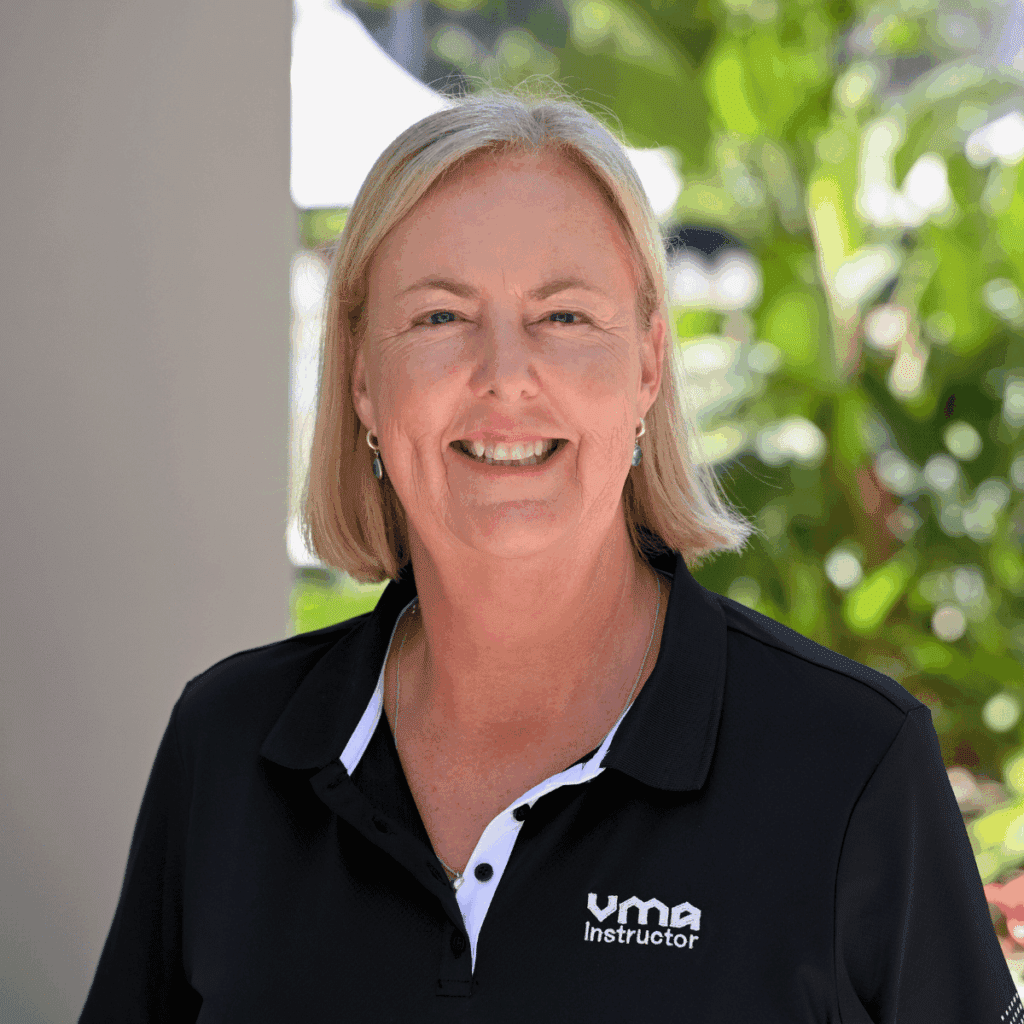
Group Director, People and Culture (APAC), Legends Global

Group Director, People and Culture (APAC), Legends Global
Rebecca (Becc) Barry is the Group Director, People and Culture for Legends Global. Becc has held a number of senior positions across her career, including the establishment of the team to operate Stadium Australia ahead of the Sydney Olympics in 2000.
With VenuesLive for a number of years, Becc was most recently the General Manager, Organisational Development based in Sydney and prior to that relocated to Perth for two years and led the establishment of the permanent and casual teams for Optus Stadium as the General Manager, Human Resources.
Becc spent ten fabulous years at the RAS of NSW as the General Manager, Human Resources. In this role she also oversaw the successful development of the Sydney Royal Easter Show Event Volunteer Program consisting of over 400 event customer service volunteers.
Becc has also worked for the Rugby Football Union at Twickenham in London, as well as in the hospitality and publishing industries.
Her expertise spans recruitment, training, performance management, industrial relations, policy development and change management.
Becc has a Bachelor of Commerce degree majoring in Human Resources and Industrial Relations and is a graduate of the Australian Institute of Company Directors. She is an Accredited Venue Manager and a Certified Professional with the Australian Human Resources Institute.

Venue Management Consultant

Venue Management Consultant
Kim Bedier is a seasoned venue executive, recognized for leadership excellence. She is passionate about great guest experience both front and back of house, and creating and fostering positive work cultures that focus on belonging, equity and continuous learning.
Kim’s career has taken her from Northern Canada to Southern California with stops in primary and secondary markets, new construction and historic icons, NHL/NBA arenas, convention centres, and complexes. She has successfully collaborated with boards, private management and ownership, and a variety of government and not for profit entities.
Kim most recently was Senior Vice President and General Manager for Honda Center/OCVIBE in Anaheim, California, home of the National Hockey League Anaheim Ducks. She was responsible for Honda Center and the development of OCVIBE venues including a 5700 seat concert hall, located in a 95 acre mixed use district being built around Honda Center.
As Director of Venues and Events for the City of Tacoma, Washington, Kim led the iconic 21000 seat Tacoma Dome, the Greater Tacoma Convention Center, Cheney Stadium (AAA Baseball), and historic theatres.
Kim’s first job after graduating from university took her to the village of Igloolik in the Eastern Canadian Arctic, where she managed the construction of a recreation complex under the midnight sun.
Kim holds the Certified Venue Executive (CVE) designation from the International Association of Venue Managers (IAVM). She served as Chair of the Board of Directors of the Association in 2015. During her tenure as an IAVM senior leader, she created the Legacy Program, facilitated initiatives for women in leadership and strongly advocated (and continues to advocate) for diverse and inclusive representation. She has encouraged and mentored many IAVM members and is a sought-after educator and speaker. Kim currently serves on the Diversity and Inclusive Leadership Committee and the Industry Affairs Committee and has never lost sight of her mantra “leave it better than you found it.”
Kim is former Chair of the Board of Regents of the IAVM Venue Management School and currently Dean of the IAVM Leadership Institute. She is also on the faculty of the Asia-Pacific (Australia) Venue Management School and Leadership Institute.
Kim was named one of five inaugural “Women of Influence” in venue management by trade publication Venues Today and received the Ray Ward Award for recognition of her contributions to education at IAVM’s Venue Management School. In 2018 she was named Venue Executive of the Year by the International Entertainment Buyers Association (IEBA) (and was nominated again in 2023). In 2022 industry publication Pollstar/Venues Now included her as a “Women in Live” honoree.
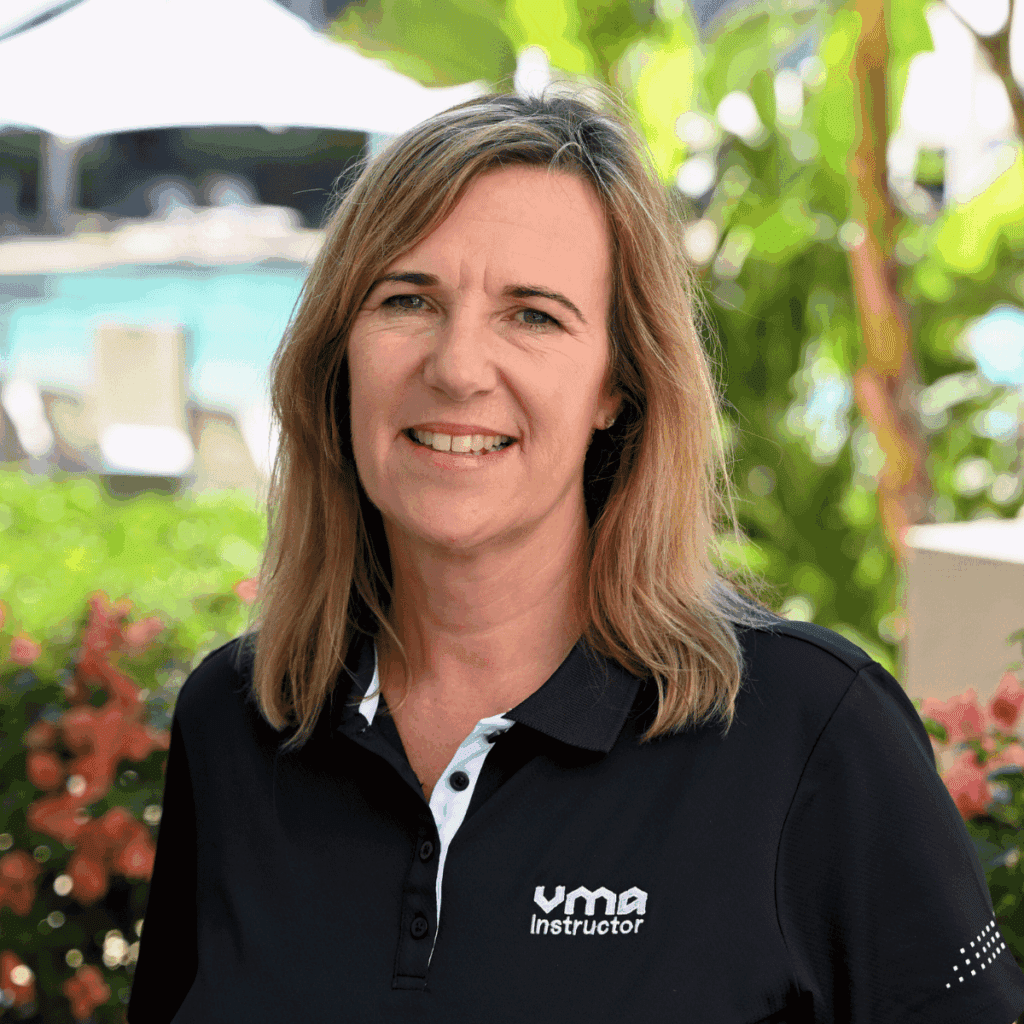
Manager, Venues and Events, Tauranga City Council

Manager, Venues and Events, Tauranga City Council
As Manager Venues and Events for Tauranga City Council, Nelita leads a team developing, delivering, and funding events and venues across one of New Zealand’s fastest-growing cities with the vision to be the host city in Aotearoa. She has a wealth of experience coming from the Venues team at New Plymouth District Council in Taranaki. Nelita led the New Plymouth team overseeing the strategic, business development, and operational delivery of Yarrow Stadium a 22,500 multi-code stadium, TSB Stadium three court indoor arena, TSB Bowl of Brooklands a picturesque 15,000 outdoor amphitheater and TSB Showplace, three theatres and conference facility. With over 18 years experience in the industry, Nelita has worked in various management roles including a senior management role with Taranaki Arts Festival Trust (TAFT). She is past President of Entertainment Venues Association of New Zealand (EVANZ), winner of the 2018 EVANZ Venue Executive Award, and past board member of the Performing Arts Network of New Zealand. In her roles, she has worked with teams to deliver numerous international sporting and concert fixtures as well as being part of the national touring performing arts circuit. Nelita has to balance the commercial viability of the venues, ensuring quality content, attracting and securing major events while satisfying the community requirements and political expectations. Nelita is passionate about our industry, ensuring our venues and the events provide amazing experiences to our communities, being a platform (whether that be a field, stage or court) to showcase amazing talent, inspiring people to participate or spectate and ensuring their lives an enhanced by the joy entertainment provides.

Precinct Manager, Walsh Bay Arts Precinct

Heather is currently the Precinct Manager, Walsh Bay Arts Precinct in Sydney for Create NSW. A public arts and cultural hub on Sydney’s waterfront. As a new redevelopment, which is home to nine resident arts companies, she is the lead advocate for the development of the precinct through leasing, marketing and venue hire.
Prior to joining Walsh Bay she was the General Manager, Event Operations and Planning at the Sydney Opera House. For fifteen years she was responsible for the stewardship and oversight of all event activity, including the planning and execution of events and the design & implementation of policies, systems and procedures.
Heather’s work as an event professional started in Adelaide as a stage manager and then moved into production and event management. This has seen her work with some of the country’s most well-known Choreographers and Directors and she has worked for many of Australia’s major arts companies including Opera Australia, Sydney Festival, Bell Shakespeare, Performing Lines, Meryl Tankard Australian Dance Theatre and Belvoir.
Heather joined the VMA board in 2020 and is a graduate from the VMS Leadership Institute. She has completed the Diploma in Venue Management and the Advanced Diploma of Leadership and Venue Management. She is also a graduate of the Australian Institute of Company Directors.
Heather is passionate about the industry which continues to deliver her with an extremely rewarding career and is thrilled to be joining the instructor team at VMS.

Director of Operations, Qudos Bank Arena

Director of Operations, Qudos Bank Arena
Michael Cox is the Director of Operations at Qudos Bank Arena, having oversight of the total operation of the Arena including the delivery of the Arena’s Technical Operations, Ticketing, Assets (including Presentation Services), Events Services and Security Divisions.
Michael commenced his career in the Venue Management Industry in 1999 at Qudos Bank Arena (formerly the Sydney SuperDome) in Venue Operations. In 2005 Michael joined the Melbourne 2006 Commonwealth Games Corporation, focusing on logistics, site management, licensing and merchandising and sports presentation for the Melbourne Exhibition Centre. Michael returned to Qudos Bank Arena in 2008 and has held a number of management positions before being promoted to his current role where he oversees the delivery of the Arena’s operations for the world’s largest events from Sir Paul McCartney, P!NK and Bruce Springsteen to Cirque du Soleil, Motocross, World Cups and National and International sporting fixtures.
A respected and dedicated venue professional, Michael was invited to be a part of the Live Entertainment Industry Forum (LEIF), which was an initiative of the VMA and Australia’s biggest promoters of entertainment and sport to support the COVIDSafe reactivation of events and live audiences across Australia.
Michael has completed a Bachelor in Management from the University of Technology Sydney and has graduated from the VMS in 2009 and the LI in 2016, achieving his AVM accreditation in 2018.

Manager, Presenter Services
Auckland Live
Tãtaki Auckland Unlimited

Glen Crighton Manager, Presenter Services, Auckland Live, brings a rich and extensive background in the performing arts industry, spanning three decades. He began his journey straight out of high school, studying theatre and working at the Hagley Theatre Company, Christchurch before further developing his technical and production skills at the esteemed Toi Whakaari New Zealand Drama School in Wellington.
Glen’s career trajectory led him to The Edge, now known as Auckland Live, which manages the Kiri Te Kanawa Theatre (2,100 Proscenium Arc Theatre), The Civic Theatre (2,300 Proscenium Arc Theatre), Auckland Town Hall (1,500 Concert Hall), Bruce Mason Theatre (1,100 Proscenium Arc Theatre), Aotea Square (25,000 Public Civic Square), The Cloud (4,500 Events Centre), Shed 10 (3,000 Events Centre), Viaduct Events Centre (4,500 Events Centre). Initially taking various roles within the Technical and Venue Event Planning team, Glen subsequently transitioned to managing the Account Managers team, a role which he has undertaken for the past 17 years. In this capacity, Glen plays a crucial role in fostering and managing relationships with key commercial theatre clients and major hirers, including the Royal New Zealand Ballet, New Zealand Opera, New Zealand Symphony Orchestra, and Auckland Philharmonia Orchestra. He also oversees bookings for a plethora of major festivals and liaises with a wide array of local and international promoters, such as Live Nation, TEG, Frontier, Adrian Bohm, and Brent Eccles Productions, among others. Glen’s responsibilities extend to developing new commercial models and partnerships, business development, contract negotiations, managing commercial musicals at The Civic Theatre, as well as experiences and exhibitions, public gatherings, live performance, and cultural and community events across the suite of Auckland Live venues.
Glen is an VMS graduate 2009 and LI in 2014, achieving Accredited Venue Manager (AVM) in 2018.

Managing Director, Thinking Outside

Managing Director, Thinking Outside
Anthony is the current Managing Director of Thinking Outside. Previously, Anthony Duffy was the owner and Managing Director of VIPeople; a division of Venue Industry Professionals Pty Ltd. Anthony has been a part of the venue industry for over 30 years at some of Sydney’s iconic sports and entertainment facilities.
Prior to the establishment of VIPeople in 2001, Anthony was employed as part of the management team at venues such as Accor Stadium, Allianz Stadium, Sydney Cricket Ground, Sydney Aquatic & Athletic Centres and Sydney International Tennis Centre.
During this time Anthony has held executive event and operational management positions, overseeing the delivery of major events across various sporting codes including: Rugby League, Rugby Union, AFL, Soccer, Tennis, Swimming, Athletics and Cricket, along with major outdoor concert productions. The highlight of these roles was assuming responsibility as Manager, Events for the delivery of Accor Stadium (then Stadium Australia) operations during its opening and the ensuing initial twelve months of event delivery.
Incorporated in Anthony’s extensive venue experience is the management of the event day workforce, with responsibilities including all aspects of staffing operations such as recruitment, training, event day management, rostering and employee relations for a workforce of up to 1,000 staff.
Prior to the 2000 Olympic Games, Anthony was seconded by SOCOG to manage front of house operations at the Beach Volleyball venue. This position was responsible for staffing, ticketing and customer service at one of the most successful Olympic venues… Bondi Beach.
As the owner and Managing Director of VIPeople (a division of Venue Industry Professionals Pty Ltd) Anthony oversees the multitude of significant staffing solutions contracts that VIPeople delivers across Australia. His focus is on guest services, business continuity and improvement strategy, assessing client needs, monitoring service standards, and maintaining and strengthening existing relationships, along with new business development.
Anthony has established a reputation as one of the industry’s leading trainers in the field of customer service, focusing on event day staff. In recent times, Anthony is currently establishing a new company, “Thinking Outside…” delivering signature programs such as “Service Excellence in Venues and Events”, working with a range of high-profile clients, including:
• Taronga Zoo
• Stadiums QLD
• Netball QLD
• West HQ
• Michael Cassel Group/Harry Potter & the Cursed Child
• Disney Theatrical
Anthony is a former lecturer with the University of Technology (holding a Master of Management Degree from that institution) and possesses a Certificate IV in Training and Assessing. In addition, Anthony is a graduate and instructor (21 years) of both the Venue Management School (VMS) and Leadership Institute (LI). Previously, Anthony has served as Chair of the VMS and currently, as the Dean of the LI.
In 2010, Anthony was awarded the inaugural “Allied Venue Professional of the Year” by the VMA Council and in 2013 was awarded “Accredited Venue Manager” status by the Venue Management Association.
In 2015, Anthony was one of only four Australians to be awarded the coveted IAVM’s “Chairman’s Citation”, recognising his commitment to development of education in the industry, primarily through the establishment of the Australian Leadership Institute.
In 2019, Anthony was awarded a “Fellowship” with the Customer Service Institute of Australia”.
In 2020, Anthony was re-elected to the VMA Board, having previously served as a Board Member for 12 years.
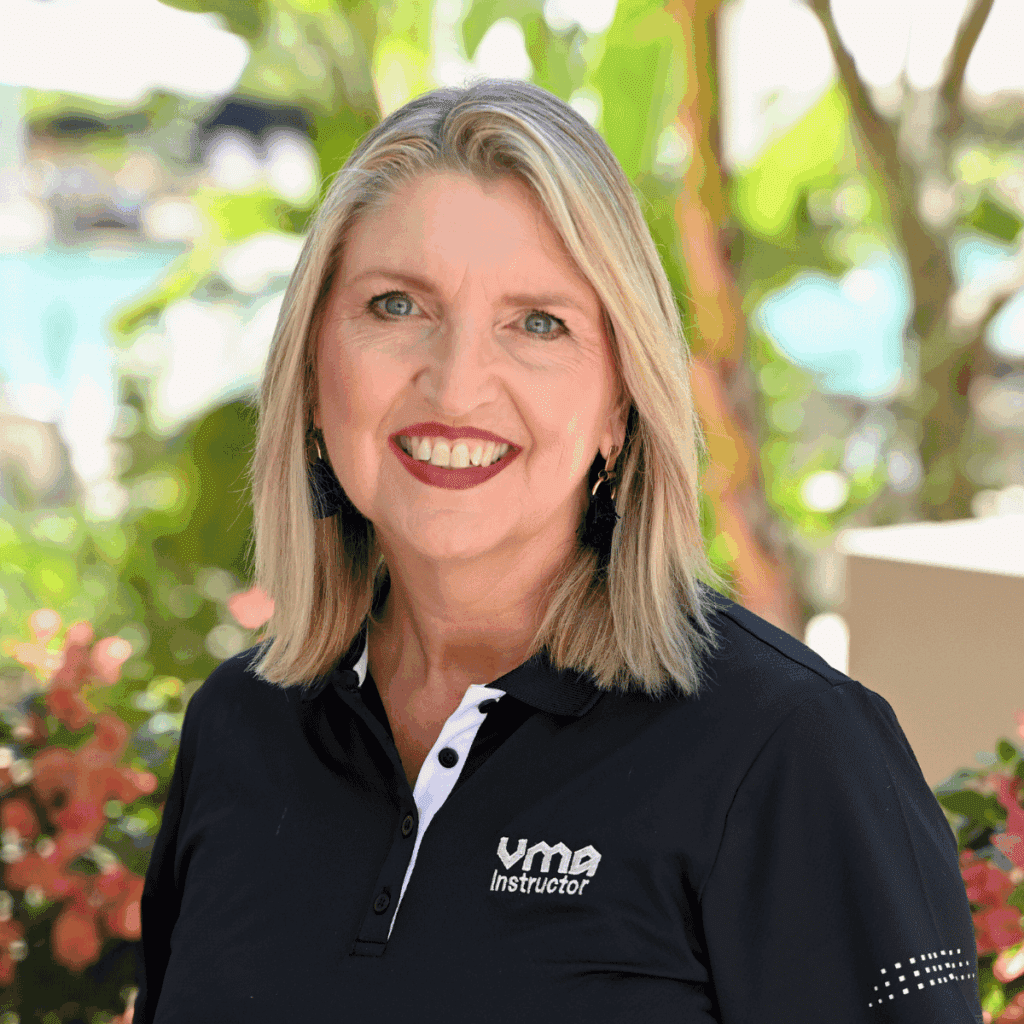
Non-executive Board Director (MAICD), Mentor and Global Senior Executive

Helen Fairclough is a highly successful non-executive board director (MAICD), mentor and global senior executive skilled in strategy, governance, venue management, change, transformation, people & culture and consultancy. Helen serves as a non-executive director of the Venue Management Association (Asia Pacific), is a former non-executive director and a current executive council member of the Victorian Chamber of Commerce & Industry, and a member of the board of directors for the Australian American Chamber Commerce (San Francisco) and former chief operating officer of Melbourne Convention and Exhibition Centre (MCEC).
Helen’s expertise in the Venue Management industry has been honed over thirteen-plus years tenure at Crown and the Melbourne Convention and Exhibition Centre, more recently overseeing operations and facilities, and asset management, including involvement in large-scale infrastructure and PPP projects. She has extensive experience in ensuring venues and their employees meet ever-changing customer expectations while adhering to regulatory and compliance standards.
Helen returned to her hometown Melbourne, Australia from California, USA to join MCEC in 2014 as their Director of People and Culture, culminating in her appointment as the Chief Operating Officer in 2021. Prior to MCEC, Helen was leading global human resources strategy and talent management for Chevron Corporation in San Ramon, California.
Her career showcases diverse expertise across multiple domains and industries, providing Helen with a global perspective spanning not-for-profit, Government and public sector, professional services, resources/energy, advertising, industry associations, chambers of commerce, gaming, hospitality and events, insurance, IT/technology and manufacturing, in Australia and with multinational corporations overseas. Helen also pursued a Masters of Entrepreneurship and Innovation from Swinburne University of Technology.
When she’s not attending a board meeting, mentoring or advising you’ll find her in the front row at a gig, exploring Melbourne’s eclectic culinary culture, travelling or showcasing her passion for staging and interior design in her location hire property

Chief Operating Officer, Gema Group

Chief Operating Officer, Gema Group
Dwane joined the Gema Group as Chief Operating Officer in 2020, bringing with him 28 years’ experience in event delivery, catering and kitchen operation. Dwane is a graduate of the Venue Management School as well as holding a Diploma in Commercial Cookery. Dwane has worked in some of the world’s best hotels, stadiums and venues with stints in London, Indonesia and Thailand, as well as a major presence here in Australia. Working for chains like Banyan Tree Hotels and Resorts, Emirates, Intercontinental Hotels and the Savoy Group. Working his way up through the kitchen to become the Group Executive Chef before making the switch to food and beverage operations and management. Dwane is part of the executive management team and oversees Gema’s group day to day operations in all 3 functional areas of the groups venue management, major event delivery and aviation lounges. Managing a national workforce in excess of 5000 staff members across events like the Melbourne F1, Moto GP, V8 Supercars, APT cup tennis as well as venues like GIO stadium, Brookvale oval, Cbus Super stadium, Queensland County Bank stadium, Central Coast stadium and Pointsbets stadium, to name a few.
Dwane joined the Gema Group following 8 years at the Royal Agricultural Society of NSW and Sydney Showground as the head of Catering & Customer Service. In his previous role Dwane managed the day to day operations of all event and non-event day catering and held the sites liquor licence. He has delivered 14 Sydney Royal Easter Shows, large scale music festivals and gala dinners for 2,500 people.

Principal, Dean Hassall Consulting

Principal, Dean Hassall Consulting
As Principal of Dean Hassall Consulting Pty Ltd (DHC), Dean applies over 25 years of industry experience by leading a boutique consultancy that provides advisory services in the areas of major public venue and events management and operations, facility development, and venue business improvement strategies. Government and corporate venue owners and developers, venue managers and operators, hirers, and service providers to the events and entertainment industry—all of DHC’s clients rely on strategic and operational input based on business management expertise honed within the venue management profession.
Numerous Board and Committee representations have been fulfilled by Dean, including former Vice Chairman of the Brisbane Racing Club, acting as the Queensland Government’s representative on the Board of the Major Sports Facility Authority (now Stadiums Queensland) and a past Director of Queensland Athletics.
Dean is a long-term member of the Venue Management Association’s Venue Management School Committee and is the current Chair of the school. Dean is a graduate of this school and in 1998 was awarded the Ogden IFC Scholarship as outstanding student. For over 18 years, Dean has been an Instructor at the Venue Management School and has lectured internationally on behalf of the Venue Management School as guest instructor at the IAVM Venue Management School when held in Oglebay, West Virginia. In 2020, Dean was selected as a resident instructor for the IAMV Venue Management School now held annually in Tampa Bay Florida, only the second Australian based industry professional to achieve this honour.
In 2010, Dean Hassall was elected to the Venue Management Association Council as the Allied Member Representative and served until May 2017. In May 2011, Dean was announced 2011 VMA Allied Venue Professional of the Year.
Educational qualifications include a Bachelor of Human Movement Studies from the University of Queensland, a Graduate Certificate in Management from Queensland University of Technology and a graduate of the VMS Graduate Institute Oglebay USA. Dean has been awarded the CVE, the elite credential of the International Association of Venue Managers; which designates recipient as an expert in venue management (all areas) and wholly dedicated to advancement of the venue industry.

Phil King is the Managing Director at Ticketek Australia.

Phil King is the Managing Director at Ticketek Australia.
His previous role was General Manager of the Adelaide Entertainment Centre and Coopers Stadium, which encompassed the overall managerial responsibility for the operational and commercial aspects of both venues.
Prior to moving to Adelaide, Phil was the Director of Live Entertainment at the International Convention Centre Sydney (ICCS) from 2016 to 2018 and was part of the pre–opening team. From 2011 to 2015 Phil was the Commercial Manager at Qudos Bank Arena (QBA), Australia’s largest indoor arena. Prior to working at QBA, Phil was the Commercial Manager at Suncorp Stadium, widely regarded as the best rectangular venue in Australia, working there from 2004 to 2011.
Phil commenced in the venue management industry at Marvel Stadium in 2001 (formerly Colonial Stadium). Phil is well recognised as a Senior Venue Management Professional with more than 18 years experience across Stadia and Arenas. Phil is an Accredited Venue Manager (AVM), and an alumnus of the inaugural Venue Management School’s Graduate Institute Program, a current instructor at the Venue Management School and a VMA Board Member from 2017 to 2020.

Group General Counsel, Legends Global

Group General Counsel, Legends Global
Adam is the Group General Counsel for Legends Global and head of the group’s legal function for all Legends Global’s venues, divisions, subsidiaries and investments within a region that covers Australia, New Zealand, Middle East, India and Asia. Starting his career in event management, Adam worked his way up to take on a number of senior roles in venues, based both in Australia and abroad and held positions in venues including Suncorp Stadium, the Beijing Olympic Basketball Arena and the Brisbane Entertainment Centre. Adam then decided to leave the industry and obtain his Juris Doctorate in Law, majoring in Corporate Law and Banking & Finance. Once admitted to the Supreme Court of Queensland Roll of Solicitors and the High Court of Australia Register of Practitioners, Adam took the role as a Judge’s Associate in the Federal Court of Australia. Working with a Judge presiding on both Federal Court and Full Federal Court matters around Australia, hearings covered areas of law from copyright, tax, workplace relations, native title, admiralty and corporations law. After his Federal Court placement, Adam practiced within the Mergers & Acquisitions and Major Project’s legal teams for a number of years at one of Australia’s largest and most prestigious law firms, Clayton Utz. Following a rewarding period in private practice, Adam took the role of Legal Counsel at the International Convention Centre, Sydney (ICC Sydney) which was then under construction in Darling Harbour as part of a billion dollar redevelopment until 2017, when Adam commenced his current position as Legends Global’s Group General Counsel and took on his group wide responsibilities. In his current role, Adam has negotiated and seen through to completion a range of matters both locally and internationally, from large-scale investment acquisitions, joint ventures, naming rights, venue management agreements or extensions, all the way through to venue specific hiring, sponsorship and supply agreements.

Chief Innovation Officer, Momentus Technologies

Chief Innovation Officer, Momentus Technologies
Steve has 38 years of experience within the Hospitality and Events industry, 29 years focused on the technology side of the business.
He has held leadership roles in event tech companies such as Oracle (formerly Micros-Fidelio), Ungerboeck Software, Aventri (formerly etouches) and is currently Executive Vice President at the recently announced merger between EventBooking and Ungerboeck, the world’s leading venue management software companies.
In 2022, Steve was awarded the Outstanding Contribution Award at the Event Tech Live Awards, and inducted to their Hall of Fame.
He is also a Certified Venue Executive, achieving this accreditation through the International Association of Venue Managers (IAVM) in 2022.
Steve is very involved in giving back to the industry and currently holds the following volunteer roles:
• On the Board of Directors for International Association of Venue Managers (IAVM)
• Current Chair of the Venue Management School for IAVM
• North American Chapter Chair of the International Convention & Congress Association (ICCA)
• Chair of the Strategic Leadership & Resources Committee for IAVM Instructor at the Venue Management Association Asia Pacific (VMA) Venue Management School & Learning Institute
• Instructor at the International Convention Centre Association (AIPC)
Over the past 20+ years, Steve has spoken in over 25 countries on topics related to the industry, with a focus on technology.

Consultant, Event and Venue Management

Consultant, Event and Venue Management
Sue Max is working as a Consultant in the Event and Venue Management industry. Having worked in the Industry for over three decades, initially with various sporting organisations, including the Sydney Organising Committee for the Olympic Games (SOCOG).
Just prior to the 2000 Olympic Games, Sue was employed by the then Operator of the Olympic Stadium (now Accor Stadium) and was part of the pioneer team which opened the then 110,000 seat Stadium in 1999. During her long tenure at the Stadium (1999-2024), Sue held various roles, including GM, Venue Management overseeing Operations, Events, Ticketing, Staffing Operations & Services and Safety and Security, before transitioning into a more strategically focussed role as GM, Operational Strategy in 2022.
Employed by VenuesLive Pty Ltd, the previous Operator of Accor Stadium and CommBank Stadium in Sydney, Sue was responsible for the delivery of all events and the management of the Company’s 2,500+ strong NSW in-house casual workforce across both Stadiums. From an event perspective, Sue has been involved with the planning and delivery of some of the world’s largest sports and entertainment events held in Australia and was also the long-term Licensee of Accor Stadium, one of the largest licensed premises in NSW.
In terms of her venue management experience, Sue played a lead role in the mobilisation and operational transition into Accor Stadium, CommBank Stadium and spent six months in Perth leading the initial delivery of the pre-operational phase of services at Optus Stadium (also operated by VenuesLive).
In 2024 / 2025, Sue had a change in employment, accepting a 12 month contract with ASM Global (ASMG) the Operator of the new Kai Tak Sports Park (KTSP) as the Director, Operational Readiness. The focus of this role was to assist the KTSP team as they prepared for the opening of the KTSP venues (Stadium, Arena and Sports Ground) and Precinct in 2024/25. Of particular focus, was the development and implementation of the Project’s operational framework and documentation, across various functions / venues and the operational integration of the Team.
Sue has a strong background and interest in stakeholder engagement and integration, risk management, security, public safety and emergency and incident management. Sue also has a particular passion for the development of organisational culture and capability and delivering world-class events and outstanding customer service.

Principal, Reliance Risk, and Consultant to Momentus Technologies.

Principal, Reliance Risk, and Consultant to Momentus Technologies.
Wayne Middleton is the Global Vice President, Risk at Momentus Technologies. Previously, Wayne was a risk management consultant and Principal of Reliance Risk. Reliance Risk helps public venues, events, sports and companies in the entertainment industry to manage risk. He has over 30 years’ experience in management and operational roles in the venues and events industries and over 20 years as a risk management professional. He is also a VMS graduate (1996). Wayne holds a Master Degree in Risk Management, a Bachelor of Business Administration and a Diploma in Security Risk Management. He also holds a Certified Venue Executive (CVE) designation awarded by the International Association of Venue Managers (IAVM).
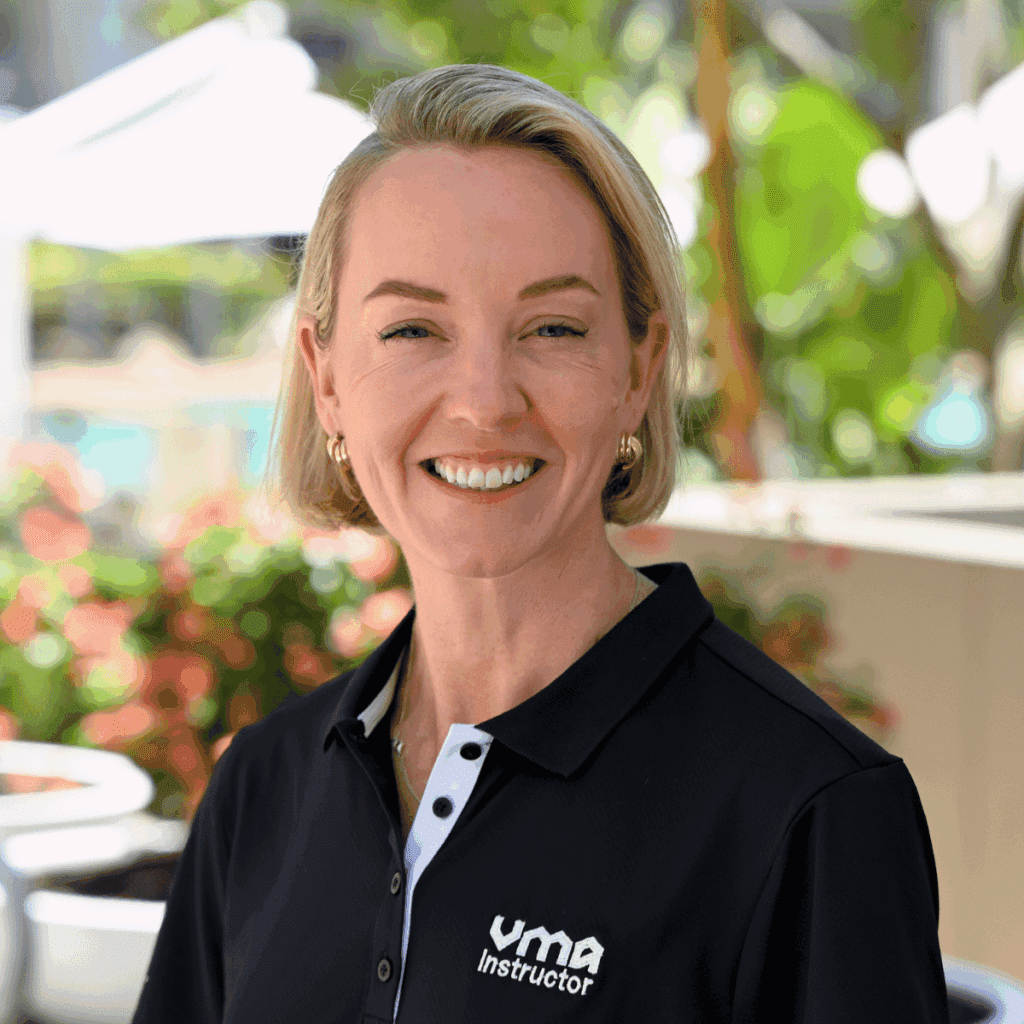
Chief Operating Officer, Melbourne Park

Megan O’Reilly is the Chief Operating Officer at Melbourne Park, where she plays a pivotal leadership role in the operation and ongoing transformation of one of the world’s premier
sporting and entertainment precincts. As a key member of the M&OP Executive team, Megan oversees Venue and Precinct Operations, Australian Open delivery and the Tennis Australia partnership, Customer Experience, Food and Beverage, Hospitality Services, Infrastructure and Facilities Management, Safety, Risk and Security, Capital Works, and long-term Master Planning.
At the core of Megan’s role is a commitment to operational excellence, innovation, and creating exceptional experiences for all guests, clients, and partners. Her passion lies in building future- ready venues that continue to lead on the global stage.
With a background spanning multiple industries – including stadiums, sport, entertainment, mining, retail, hospitality and the not-for-profit sector – Megan brings a broad perspective and deep expertise in strategic leadership, commercial performance, and customer-first thinking. She holds a Bachelor of Commerce and a Bachelor of Economics, alongside qualifications in fitness, Pilates and nutrition, reflecting her holistic approach to leadership and wellbeing.
Megan has previously served on the VMA Mentor Program Committee, where she actively supported the development of emerging venue professionals. Her commitment to nurturing future leaders remains a personal priority, and she is passionate about providing meaningful pathways and opportunities for the next generation of talent within our industry.
Through service on the VMA Board, Megan hopes to contribute to the ongoing elevation of the venue management profession across Australasia. She brings a future-focused mindset and a belief that our industry is at a pivotal moment — requiring strategic leadership that not only responds to change but actively shapes it. Her experience delivering high-impact major events, managing complex stakeholder environments, and leading transformation programs positions her to provide strong contributions to the direction and growth of VMA.
She is particularly interested in how VMA can continue to build global relevance and thought leadership, evolve the skills and capabilities of venue professionals, and embed diversity of
background, perspective and experience at every level of the association. Megan also believes that having representation from Melbourne Park — a globally recognised, multi-venue precinct
— brings important insight and scale to the Board table.
Megan’s leadership style is collaborative and values-led. She brings curiosity, clarity, energy and heart to everything she does, and would be proud to serve and represent the VMA community.
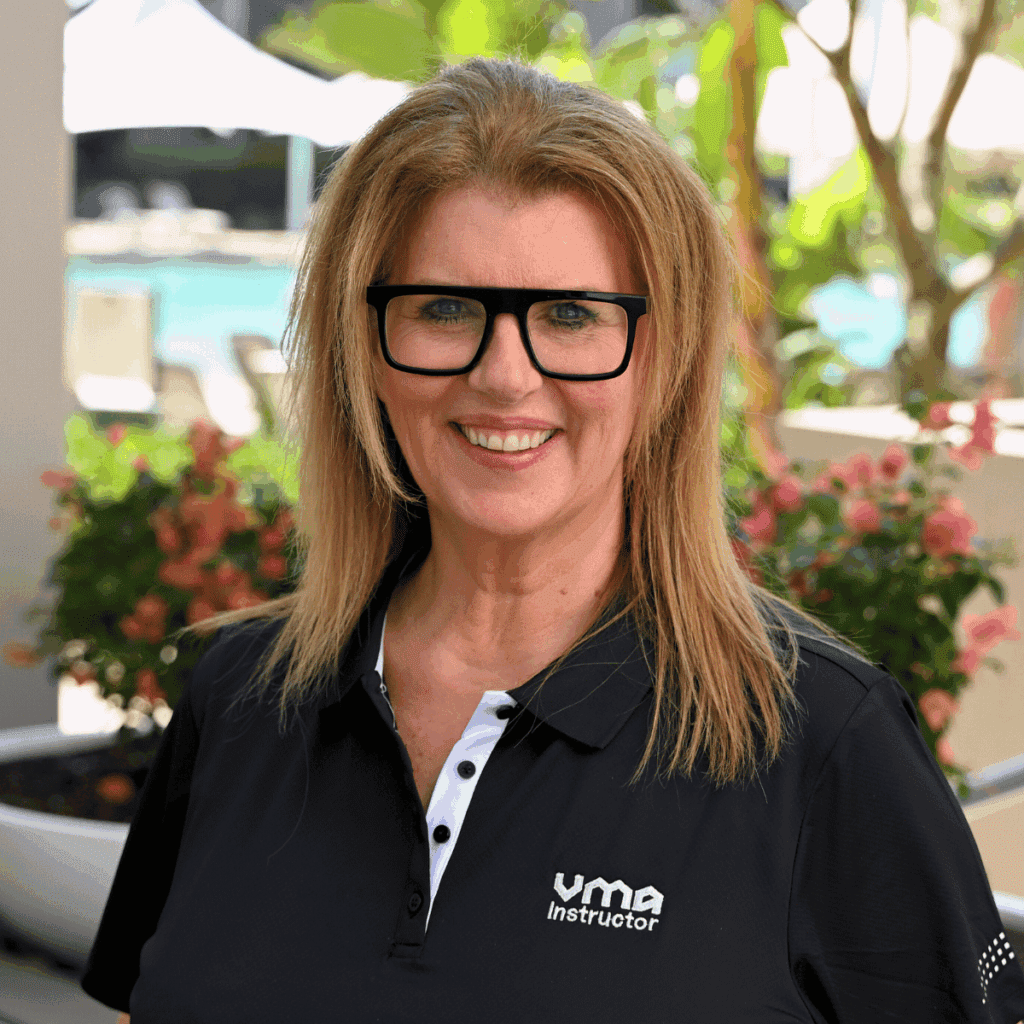
Group Director – Arena Operations for Legends Global

Meagan Walker is a seasoned leader with over 25 years of experience in venue management and the live entertainment industry, having shaped operations at some of Australia’s most iconic venues. As Group Director – Arena Operations (APAC) for Legends Global, Meg oversees the strategic and operational excellence of premier venues including Qudos Bank Arena (Sydney), Brisbane Entertainment Centre, Newcastle Entertainment Centre, and RAC Arena (Perth), serving as both a brand ambassador and a driving force behind world-class experiences.
Her career spans pivotal roles such as Venue Manager of the Palais Theatre and General Manager of Rod Laver Arena and General Manager -Touring where she led content and operations within Melbourne Park’s entertainment and sports precinct. Known for her strategic vision and collaborative leadership, Meg excels at balancing stakeholder needs from promoters and government authorities to patrons and venue owners, while delivering commercial success and unforgettable audience experiences.
Beyond operations, Meg is deeply committed to mentoring the next generation of venue professionals. She fosters a culture of growth and empowerment within her teams, helping individuals achieve personal and professional milestones. Her influence extends across the industry through her long-standing involvement with the Venue Management Association (VMA), where she serves on the Board and the Professional Development Committee. A passionate educator, Meg has instructed at the Venue Management School (VMS) since 2007 and was a guest international lecturer at the Graduate Institute in Oglebay, USA. . In addition, Meg is a past member and Chair of the VMA’s Venue Management School Committee
Meg’s dedication to professional development and industry education reflects her belief that strong mentorship builds resilient teams and future-ready leaders. Her legacy is not only in the venues she’s helped shape, but in the people she’s inspired along the way.
Develop your people and build a high-performing venue team for the future.
Arrive
Sunday, 8 November
Depart
Friday, 13 November
Member
$4,720*
*price subject to change. Price includes GST
Non Member
$5,220*
*price subject to change. Price includes GST
INCLUSIONS
While it is difficult to outline every possible scenario that may eventuate as a result of changes to public health orders and government mandated travel restrictions, the overriding principle of the VMA is to minimise the health and financial risk for all parties, including the student, their employer, the VMA and the host venue.
In the event that the IVSS, either through the ability of the host venue to continue to host guests, or the VMA’s ability to continue to deliver the program, or a student’s ongoing participation in the IVSS is disrupted after the commencement of the IVSS, the VMA will actively work with all parties to share the risk, negotiate the best outcome for all involved and only pass on any hard costs incurred at any applicable time.
The VMA makes a commitment to act in good faith with students, and their employers, to resolve any cancellations in line with the principles and intent of the T&C’s.
The following sets out the terms and conditions attached to enrollment in the Institute of Venue Safety and Security.
All prices are quoted in Australian Dollars and inclusive of GST.
Behaviour: VMA reserves the right to prohibit entry of any person to a VMA event, or eject any person from a VMA event based on behaviour deemed inappropriate by VMA staff and/or its agents and others working under its authority.
Canvassing: Canvassing by attendees is strictly prohibited at VMA events. Promotional materials may not be distributed at the event except by VMA approved event sponsors and exhibitors. Attendees violating this policy will be asked to leave the event and VMA Members may have their membership revoked.
Credit card surcharges and other bank fees: For any payment made via credit card, a processing fee of 1.4% on Visa & Mastercard and 2.4% on American Express will apply. Our surcharge fees are not greater than our cost of acceptance. Any other unexpected costs incurred by VMA in the processing of payments will be charged back to the remitter. Such costs include, but are not limited to, bounced cheques fees and related bank charges.
Disclaimer: The VMA reserves the right to change activities, topics and presenters where necessary. The VMA shall not be liable for any loss caused by the cancellation of an event where such cancellation is due to Force Majeure. The term “Force Majeure” means any circumstance beyond the reasonable control of the organisers including but not limited to war, hostilities (whether war be declared or not), terrorism, aircraft hijacking, military operation, riot, civil war, rebellion, civil commotion or unrest, natural disasters, Acts or Regulations of government, refusal to grant visas, explosions, transport delays, transport difficulties and the insolvency of airline carriers. The organisers will use all reasonable efforts to conduct the conference despite the intervention or occurrence of any such cause.
Electronic Funds Transfer (EFT): If paying via EFT, online registration needs to be completed and an invoice will be issued. EFT payment must be received and include the invoice number quoted on the remittance advice in order for the registration to be processed by VMA. Payment by EFT will not be accepted after the registration closing date. Your registration is not confirmed until you have received a receipt and confirmation email from VMA. Invoices and confirmations will be issued to the email address used in the online registration.
Image release: In registering for VMA events and conferences, attendees grant permission to VMA, its agents and others working under its authority, to take and to have full and free use of video/photographs containing their image/likeness. It is understood these images may be used for promotional, news, online/multimedia, research and/or educational purposes by and for VMA. Attendees agree that they are not entitled to remuneration, residuals, royalties or any other payment from VMA in respect of their image/likeness or its use. Attendees release, discharge, and hold harmless, VMA and its agents from any and all claims, demands or causes of actions that they may hereafter have by reason of anything contained in the photographs or video. Should a attendee not agree to the above image release, they must advise VMA by contacting +61 (0)7 5575 9185 or admin@vma.org.au
Insurance: Students are strongly advised to secure appropriate travel and health insurance. Student enrolment fees do not provide any such insurance coverage. The IVSS Committee and VMA accept no responsibility for any loss in this regard.
Intellectual property:Some Instructors have kindly agreed to share their presentation slides, webcasts and other course information with students only. This content is not intended for wider distribution – according to Australia’s intellectual property laws, sharing, broadcasting and/or copying of this content, including for commercial purposes, is not permitted without the prior permission of the owner. Please be respectful of this intellectual property.
Invoices: When you complete the online registration form a tax invoice will be issued in compliance with ATO requirements. This can be used to make payment by Electronic Funds Transfer, Credit Card, or cheque and you can keep this completed form on file for your tax records.
Payment: To avoid disappointment, ensure you pay for your booking(s) before the registration closing date. Anyone that has not received a confirmation email will not be on the event attendance list and therefore will not be admitted to the event.
Privacy notice: VMA is concerned with the protection of your privacy. We support the privacy principles contained in the Privacy Act 1988 (Cth), as amended. VMA collects and stores your personal information for the purposes of providing membership services, education and training programs. Here is how your data may be used:
Program: VMA reserves the right to change the program at any time. Every effort will be made to ensure a program of equivalent standard.
Registration Notice: VMA Member registration rates are not transferable to non-VMA Members, except as agreed by the VMA and this may incur an additional payment to reflect the non-member rate. By selecting a member registration rate, it is agreed that the registrant is a current financial member of VMA and that the registration is made in the VMA Member’s name only. A breach of this may result in a cancellation of an event registration and/or VMA membership.
Registration and Payment: Payment in full is required by the event date in order to attend.
Sharing registrations: One registration may not be utilised by several individuals.
Smoking: Smoking of all kind, including vaporized tobacco, is prohibited in any event space.
Substitutions: Should a registrant be unable to attend, they may send one substitute in their place. VMA must agree to all substitutions prior to the event. Refer to ‘Registration Notice’ above.
It is the expectation of the IVSS Committee that all students will abide by a Code of Conduct that encourages respect and dignity of each individual and will allow students to learn in a supportive and stimulating environment. We believe that students, Instructors, staff and volunteers have the right to attend the school which is free from harassment, bullying and intimidation.
The following types of conduct are prohibited at the IVSS and may lead to disciplinary action, including the possible removal from the school.
Harassment may involve inappropriate actions, behaviour, comments or physical contact that is objectionable or causes offence. It is behaviour which makes people feel:
Sexual harassment includes but is not limited to unwelcome sexual flirtations, advances or propositions, verbal abuse of a sexual nature, verbal comments about an individual’s body, sexually degrading words used to describe an individual; or the display/use of sexually suggestive objects, pictures and/or jokes.
If an incident does occur please refer to the following VMA Policy and Procedure:
The following types of conduct are also prohibited at the IVSS and may lead to disciplinary action, including the possible removal from the IVSS.
Commitment to Learning
The IVSS provides an adult learning environment. It is your responsibility to act in a way that does not interfere, directly or indirectly, with the learning of other students or obstruct staff from carrying out their duties.
Students are expected to:
Respect for Others
All students have a right to expect a safe and enjoyable learning environment so that they can perform to the best of their ability. This means:
Unacceptable Behaviour
Unacceptable behavior is any conduct which disrupts others and hinders Instructors and Staff from delivering education, training and other services in an orderly manner. Any individual or group behavior which is abusive, indecent, violent, unruly, disorderly, dangerous, offensive, or which unreasonably disturbs others may be considered unacceptable and result in disciplinary action. This applies not only in classrooms, but in all VMA organised activities.
Attendance
It is a requirement that all students stay at the nominated location of the IVSS for the entire week. It is not acceptable to leave at any time except under exceptional circumstances (work commitments are not an exceptional circumstance). A 100% classroom attendance is a prerequisite for students to be awarded with the Graduation Certificate. Students must attend all classes and discussion groups, pass the exam and complete in-class activities.
Partners and families
Students are not permitted to have partners or family members staying with them during the course of the IVSS.
Classroom Sessions
The curriculum consists of a number of classroom sessions from Sunday to Thursday of the nominated week. It is essential each session commences and finishes on time. Please make sure you arrive on time for classes.
Dress
It is your responsibility, as a mature student, to attend class appropriately attired. Dress for classroom activities is casual. The weather will be cool/mild, with temperatures ranging from around 8 – 18 degrees. The classroom is air-conditioned and we recommend bringing coat/jacket. Hats are not to be worn in class. On Thursday night at the Graduation Dinner, men are to wear a jacket and tie, and women cocktail attire.
Smoking
Classrooms, restaurants, meeting places and bedrooms are all smoke free zones.
Mobile Phones
Mobile phones are not to be used in the classrooms unless relevant to that session.
Additional Costs
If you have selected with Accommodation, the registration fee covers accommodation for 5 nights (Sunday to Thursday) and includes breakfast, lunch, dinner and morning and afternoon teas. Telephone calls, use of hotel activities, mini-bar, purchases at the bar, flights, transfers and any other incidental costs are your own responsibility.
Student Support
Any queries please contact Suzie Crawford, our Education Manager. You can reach her at education@vma.org.au or 0437 827 228.
Policy Statement
IVSS is sensitive to the needs of students who wish to breastfeed their child whilst studying at IVSS. In this context, the IVSS acknowledges the importance of breastfeeding for both mother and baby, and supports women who wish to combine breastfeeding whilst studying at IVSS.
Application of Policy

The Momentus Technologies Bursary is awarded to the highest performing Year 1 student at VMS. The winner receives their tuition fees covered for Year 2 VMS.
Please note: Applying for our scholarships is separate from registering or applying for any of our education programs.
Applications will open soon.
Successful applicants will be contacted by the VMA office by the end of September.


